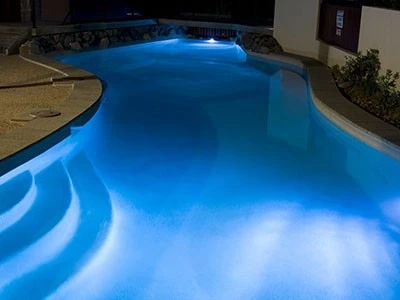Pool lights are an essential element of any swimming pool, providing both safety and ambiance for nighttime swimming and poolside gatherings. Over time, however, these lights may require replacement due to wear and tear, malfunction, or a desire to upgrade to more energy-efficient and aesthetically pleasing options. In this comprehensive guide, we will delve into everything you need to know about pool lights and explore the key factors influencing the cost to replace a pool light.
Understanding Pool Lights
Before we delve into the cost of replacing a pool light, let's first explore the types of pool lights commonly available in the market. The most popular options are incandescent, halogen, fiber-optic, and LED pool lights. Each type has its unique features, pros, and cons, making it essential to choose the right one for your specific pool needs.
Signs It's Time for Replacement
Identifying the right time to replace a pool light is crucial to maintain safety and avoid any potential electrical hazards. We'll discuss common signs that indicate a pool light may need replacement, such as flickering, dimming, water leakage, or physical damage. Timely replacement can help prevent more significant issues down the line and ensure your pool remains a safe and enjoyable space.
Factors Influencing Replacement Costs
Several factors come into play when determining the cost to replace a pool light. We'll break down these factors, including:
a. Pool Light Type: The cost of the replacement largely depends on the type of pool light you choose. LED pool lights, while initially more expensive, offer energy efficiency and longer lifespan, which can result in cost savings over time.
b. Installation Complexity: The complexity of the installation process can also impact the overall cost. Replacing a pool light that requires underwater wiring and conduit may be more involved and costly compared to surface-mounted lights.
c. Professional Installation vs. DIY: Deciding between hiring a professional electrician or attempting a DIY replacement can have cost implications. We'll discuss the benefits and risks of each approach to help you make an informed decision.
d. Quality and Brand: The quality and brand of the pool light will affect the price. Opting for a reputable brand known for durability and performance may be costlier initially but could lead to long-term savings.
Budgeting for Pool Light Replacement
To avoid unexpected expenses, it's essential to plan and budget for pool light replacement. We'll provide practical tips on how to estimate the cost accurately, including obtaining multiple quotes and factoring in potential additional expenses.
DIY vs. Professional Replacement Pros and Cons
Replacing a pool light can be a complex task, involving electrical work and dealing with water. We'll weigh the pros and cons of a DIY approach versus hiring a professional, considering factors like safety, expertise, and warranty implications.
Conclusion
In conclusion, replacing a pool light is a necessary investment to maintain the safety and beauty of your swimming pool. Understanding the various types of pool lights, signs that indicate replacement, and the factors influencing replacement costs can help you make an informed decision. Whether you opt for a DIY replacement or hire a professional, prioritizing safety and long-term efficiency should be at the forefront of your considerations. By following this ultimate guide, you can ensure a smooth and cost-effective process when replacing your pool light, bringing illumination and enjoyment back to your poolside experiences.


